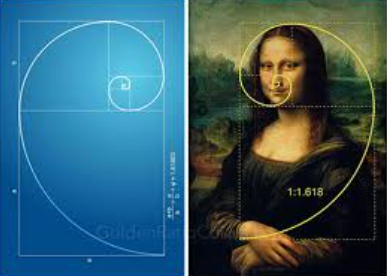Written By: Miles Watts, Staff Writer
DEFENSE: Many of the prejudices against mathematics are often too extreme and misguided.
“Ew!” is what many say when they hear math. Some feel that it is too difficult. Some feel that the subject is only for smart people, and that one has to be born with an innate knack for solving equations. Some feel that math is only for “nerds”. But mathematics is so much more than a boring subject taught by a monotone teacher. Mathematics is a beautiful, almost magical, concept. Mathematics is essential to all life. As Galileo Galilei said, “mathematics is the language with which God has written the universe.” The subject is unique to all, and in its importance we can find its beauty.

Many people say that mathematics is an uninteresting subject full of useless concepts, but this is far from the truth. For example, the Mandelbrot Set is purely mathematical, and yet it creates gorgeous, abstract structures. It is also mathematically infinite, so the same shapes will always recur as time goes on. It is wildly beautiful that a person might mistake it for an art piece or something created by a computer program. But these structures are all numbers on a graph. Math is able to create complex and infinite formations that no human could ever imagine with just a pen and paper. Furthermore, mathematics is often used in art which can be seen in Leonardo Dan Vinci’s painting The Mona Lisa. Da Vinci utilized what is called the golden ratio, which is a set of numbers that form a spiral shape when drawn. He used this mathematical concept to lay out the proportions of the woman’s face and the rest of the painting. Mathematics is used constantly in paintings, and Renaissance artists like Da Vinci laid the foundation for utilizing these mathematical concepts in depicting a scene. The golden ratio can be found in many other paintings like The Starry Night by Vincent Van Gogh and Under the Wave off Kanagawa by Katsushika Hokusai, and many other artists have used geometric proportions to complete their work. Mathematics are not only able to aid in the creation of masterpieces, but also create its own infinite ones too.
Many people believe that mathematics is extremely difficult, and that one has to be a “math person” in order to thrive in the classroom. However this couldn’t be further from the truth, as there is no such thing as a “math person”. A large part of our ability to do math, and any activity, is our attitude towards it. In his book, Outliers: the Story of Success, Malcom Gladwell explains that Chinese children have an inherent advantage in mathematics because of the short syllables of numbers in Mandarin. These short words allow for the children to memorize numbers faster than Latin-based languages like English, and it creates a more positive attitude towards math as they generally find it easier. This positive attitude creates an incentive to work harder which creates more interest. Not everyone loves math, but it is deprecating feelings that they are not a math person that causes this stigma that only specific people have the brains for math. However, those who see math in a positive light tend to do better for the same reasons the Chinese excel at math (with regards to attitude). Having the right mindset about a specific subject does lead to an increase in passion and productivity while a negative attitude creates a “can’t do” point of view. Furthermore, there are plenty of people who are passionate about mathematics that are more than happy to aid anyone struggling with a concept. Poly offers math tutoring from specific teachers on campus for students to come in for help. They are more than happy to help and feel enjoyment from teaching and explaining a topic they love. And students too can help peers with math which strengthens their relationship with one another as well as their understanding of the topic. With plenty of options for assistance, anyone struggling with math is almost guaranteed to find an answer they understand to their questions and to potentially find an interest in what they are learning. When it comes to math, its assumed difficulty comes from negative feelings towards the subject and not asking for help from peers or teachers.
Math may seem boring and unnecessarily hard, but the opposite is true when approached with the right attitude. It is important that we fight against these misconceptions, as it hinders people’s ability to find a potential passion for the subject. Mathematics is found everywhere and in everything, so why do we harbor such negative feelings towards this concept that makes up our universe? Having a positive view on math not only benefits us academically but also our view on life, as we see that we are all the same when it comes to math; that everything is united by the language “with which god has written the universe”.

